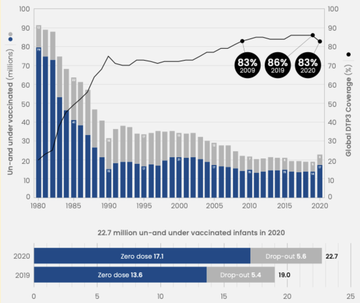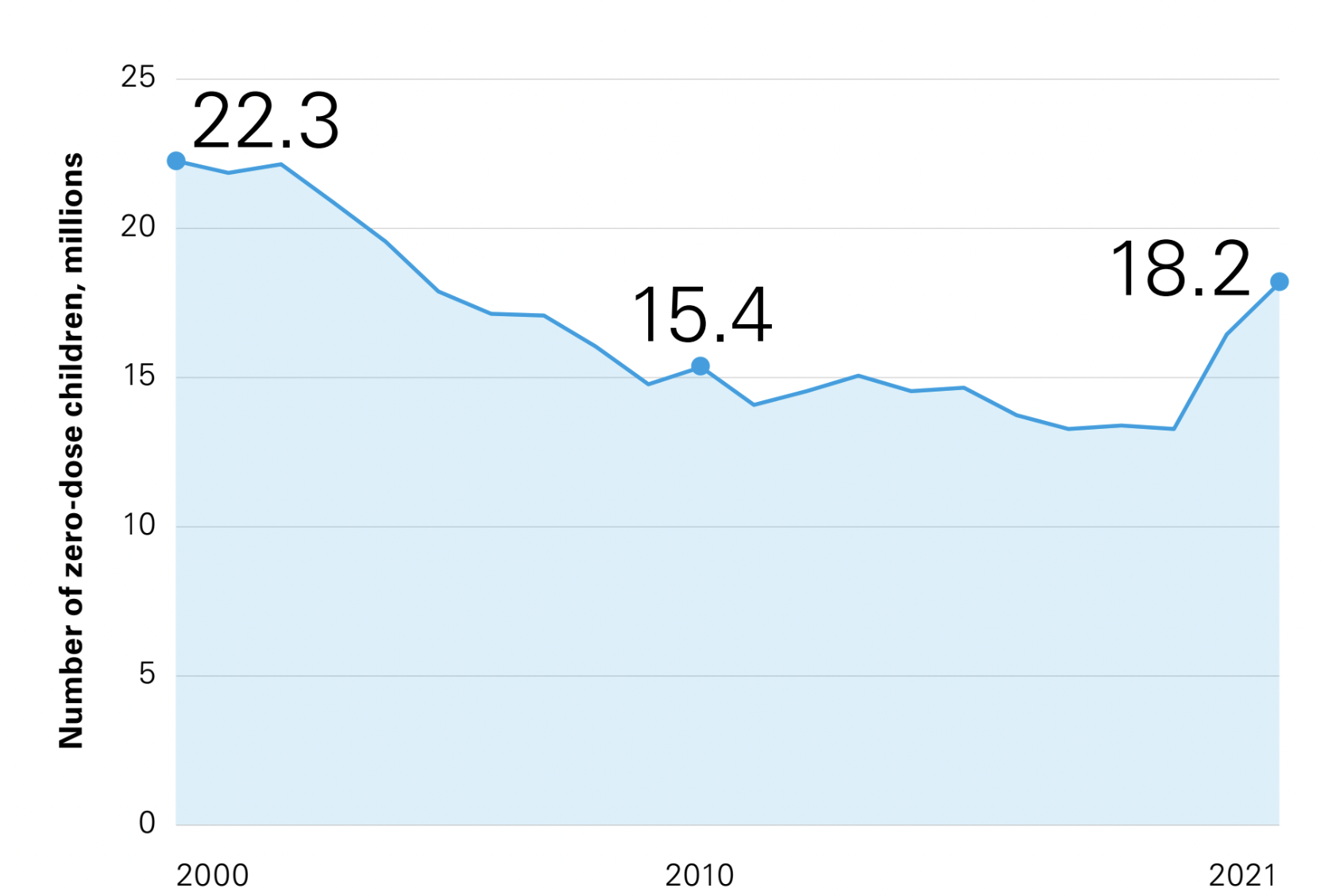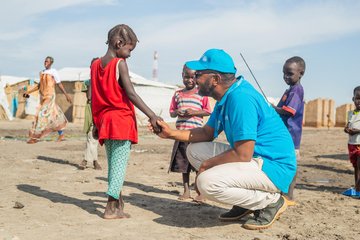What's impacting vaccination?
What do individuals and communities think about vaccines?
💡 Information has to be relevant, trusted and useful for it to positively affect people’s health behaviours. So we must be able to understand the questions, concerns, information gaps and needs that people have about vaccines, and the misinformation they may be exposed to, if we are to communicate effectively with the public about vaccines.
📉 The COVID-19 pandemic disrupted routine immunisation services, with an estimated 30 million children missing vaccination in 2020(1). This has led to an increasing number of zero-dose children (now over 18 million), and cohorts of children who are under-vaccinated(2).
💉 Disruption to vaccination services globally

Source: WUENIC 2020
😰 The uncertainty and anxiety associated with the pandemic, which was exacerbated by an infodemic of misinformation and large information gaps, has also had an impact on public acceptance of vaccination with some studies finding drops in vaccine acceptance.
📈 There is also evidence that vaccine acceptance has increased in some contexts, such as for adult vaccines, as vaccines and respiratory diseases have become more salient in people’s minds.
💉 An “infodemic”
“We’re not just fighting an epidemic; we’re fighting an infodemic. Fake news spreads faster and more easily than this virus, and is just as dangerous.” - Dr. Tedros Adhanom Ghebreyesus, director general of the World Health Organization
✔️ The pandemic has highlighted the importance of public trust as a foundation of vaccine acceptance and uptake. In one study that looked at pandemic-preparedness indices in 177 countries, only high levels of government and interpersonal trust were associated with higher COVID-19 vaccine coverage (3).
❌ In another study, lack of trust in health professionals and low confidence in domestic and international health institutions was consistently associated with COVID-19 vaccine hesitancy (4).
💉 Eroded trust in vaccines

Source: (5)
Many challenges, ranging from a period of uncertainty and fear, to politicised public health responses, may undermine public trust in vaccination.
Thus, as we emerge from the pandemic it has become more important than ever to communicate effectively with the public. To speak with people, where they are, about what matters to them, in their language. This guide will help you do this.
Sources:
(1): Causey K, et al. Estimating global and regional disruptions to routine childhood vaccine coverage during the COVID-19 pandemic in 2020: a modelling study. Lancet. 2021 ;398(10299):522-534
(2): WHO/UNICEF Estimates of National Immunization Coverage
(3): COVID-19 National Preparedness Collaborators. Pandemic preparedness and COVID-19: an exploratory analysis of infection and fatality rates, and contextual factors associated with preparedness in 177 countries, from Jan 1, 2020, to Sept 30, 2021. Lancet. 2022 Apr 16;399(10334):1489-1512.
(4): Rozek LS, Jones P, Menon A, Hicken A, Apsley S, King EJ. Understanding Vaccine Hesitancy in the Context of COVID-19: The Role of Trust and Confidence in a Seventeen-Country Survey. Int J Public Health. 2021 May 14;66:636255. doi: 10.3389/ijph.2021.636255.
(5): World Health Organization and United Nations Children’s Fund, ‘Estimates of National Immunization Coverage (WUENIC), 2021 revision’, July 2022.
Average Rating: ☆ ☆ ☆ ☆ ☆ (0 reviews)


